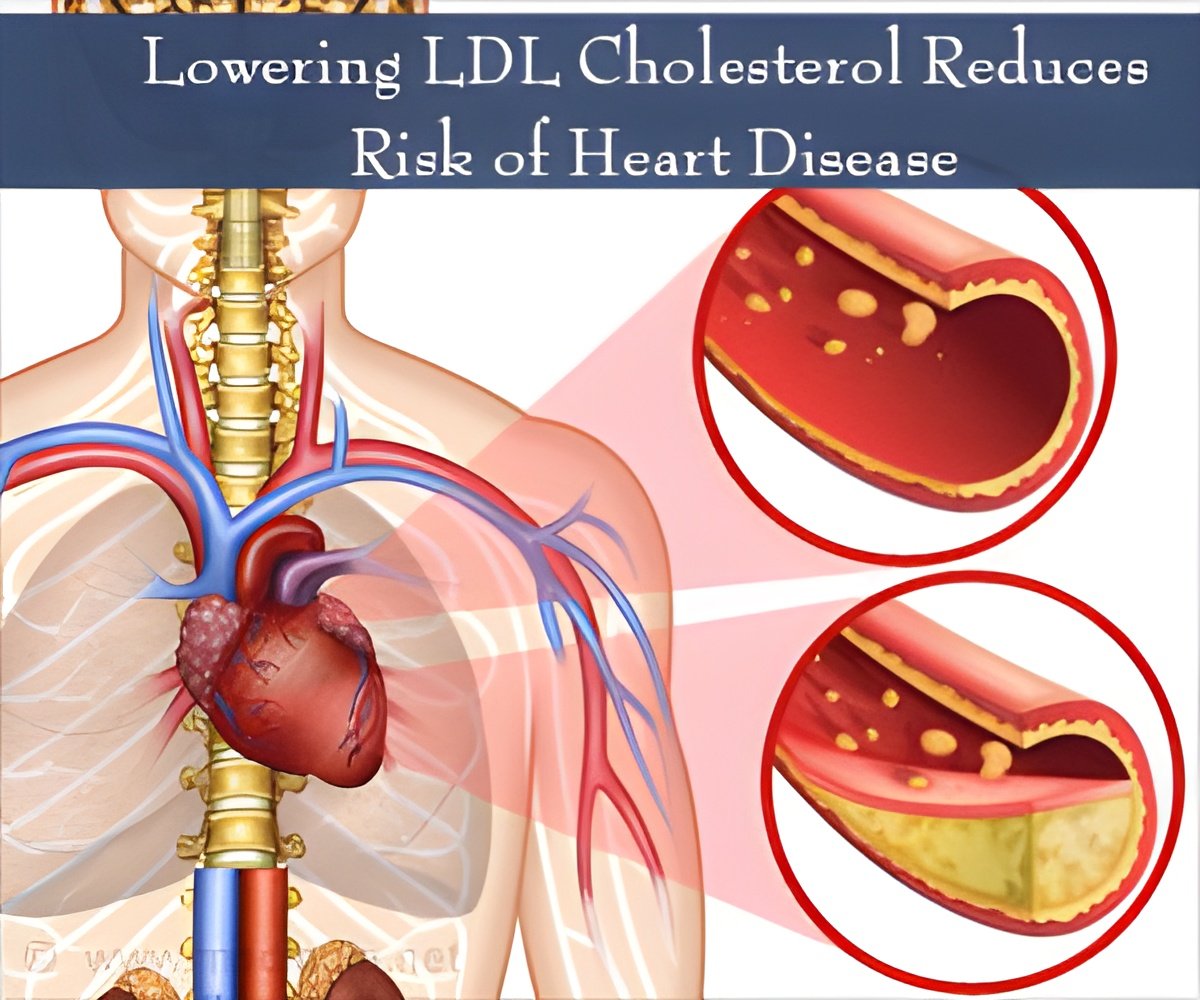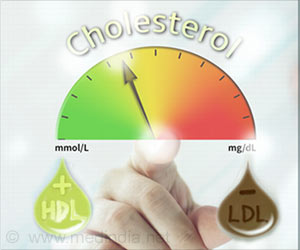Having an elevated LDL cholesterol level at a young age raises the risk of developing heart disease, and the elevated risk persists even in those who were able to later lower their LDL cholesterol levels.

‘Two people with the same cholesterol level at age 40 may have different risks of having a heart attack or stroke with risk being higher for the person who had higher cholesterol as a teenager. Greater the level of LDL cholesterol, the more chances of experiencing a major cardiovascular event.’





The research makes a strong case for doctors to intervene early to treat high levels of low-density lipoprotein (LDL) (bad cholesterol). It also provides guidelines for future intervention studies aimed at stemming the worldwide epidemic of heart disease and stroke.The study, entitled "Time Course of LDL Cholesterol Exposure and Cardiovascular Disease Event Risk", was published in the Journal of the American College of Cardiology and relied on data from the Coronary Artery Risk Development in Young Adults Study (CARDIA).
This ongoing study began 35 years ago, recruiting 5,000 young adults aged 18 to 30. It has been tracking this cohort ever since to understand the contribution of individual characteristics, lifestyle and environmental factors contribute to the development of cardiovascular disease later in life.
"Damage to the arteries done early in life may be irreversible and appears to be cumulative. For this reason, doctors may want to consider prescribing lifestyle changes and also medications to lower high LDL cholesterol levels in young adults in order to prevent problems further down the road,” said Dr. Domanski.
The researchers used complex mathematical modelling to understand how cardiovascular risk increases with rise in cumulative exposure to LDL cholesterol over an average of 22 years.
Advertisement
Lifestyle measures can be used to lower high LDL levels during the teenage years. Exercising regularly, maintaining a healthy body mass index and sticking on to a healthy diet plans with low saturated animal fats.
Advertisement
"Cardiovascular disease remains the biggest killer in the world, and this new finding provides a potential way to save many lives," said E. Albert Reece, MD, PhD, MBA, Executive Vice President for Medical Affairs, UM Baltimore and the John Z.
Source-Medindia











